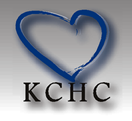

Innovations in Health Communication

Students and early career scholars may identify their papers for category-specific awards:
Papers should follow APA 7th edition format and be between 10 and 20 pages of text (exclusive of title page, abstract, references, and tables/figures). As applicable, indicate “Student Paper” or “Early Career Scholar Paper” clearly on the title page of the paper. Your title page should include complete author information, per APA; KCHC staff will remove the title page before sending papers for blind review. The authors of top papers will be recognized in the program and will receive a plaque. To be considered for an award, submit completed papers to kchc@lsv.uky.edu by Friday, February 16, 2024, by 8:00 PM Eastern Time.
Top Poster Awards: Abstracts that are accepted as poster presentations are eligible to receive top poster awards. Evaluation criteria include quality of scholarship, clarity of presentation, and visual appeal. To be considered for an award, submit the poster in PDF form to kchc@lsv.uky.edu by Friday, March 22, 2024, by 8:00 PM Eastern Time. Do not include author names or affiliations on your submission to allow for blind review. (Do include this information on the version you present at the conference, of course.)